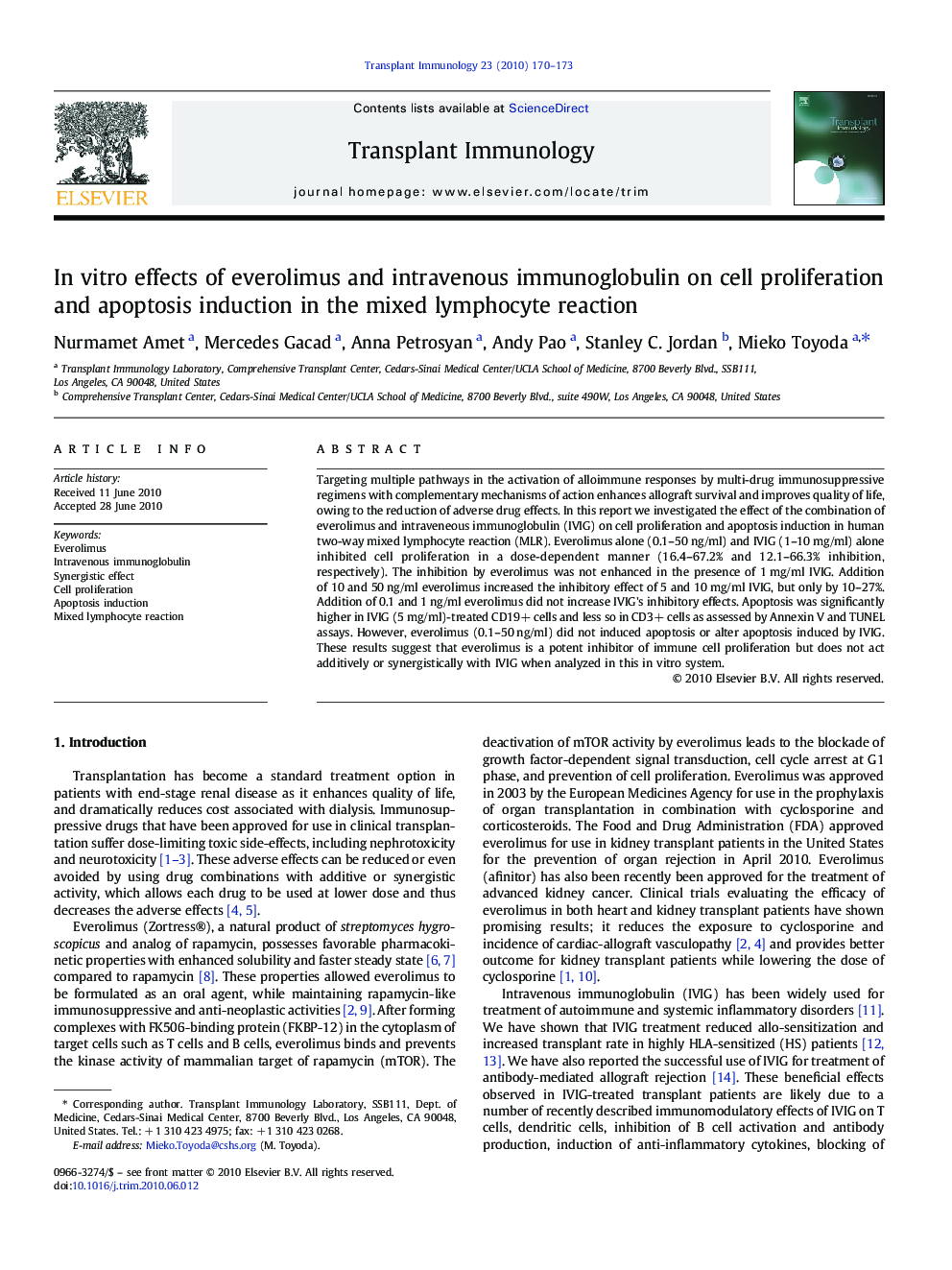| Article ID | Journal | Published Year | Pages | File Type |
|---|---|---|---|---|
| 3392342 | Transplant Immunology | 2010 | 4 Pages |
Targeting multiple pathways in the activation of alloimmune responses by multi-drug immunosuppressive regimens with complementary mechanisms of action enhances allograft survival and improves quality of life, owing to the reduction of adverse drug effects. In this report we investigated the effect of the combination of everolimus and intraveneous immunoglobulin (IVIG) on cell proliferation and apoptosis induction in human two-way mixed lymphocyte reaction (MLR). Everolimus alone (0.1–50 ng/ml) and IVIG (1–10 mg/ml) alone inhibited cell proliferation in a dose-dependent manner (16.4–67.2% and 12.1–66.3% inhibition, respectively). The inhibition by everolimus was not enhanced in the presence of 1 mg/ml IVIG. Addition of 10 and 50 ng/ml everolimus increased the inhibitory effect of 5 and 10 mg/ml IVIG, but only by 10–27%. Addition of 0.1 and 1 ng/ml everolimus did not increase IVIG's inhibitory effects. Apoptosis was significantly higher in IVIG (5 mg/ml)-treated CD19+ cells and less so in CD3+ cells as assessed by Annexin V and TUNEL assays. However, everolimus (0.1–50 ng/ml) did not induced apoptosis or alter apoptosis induced by IVIG. These results suggest that everolimus is a potent inhibitor of immune cell proliferation but does not act additively or synergistically with IVIG when analyzed in this in vitro system.
